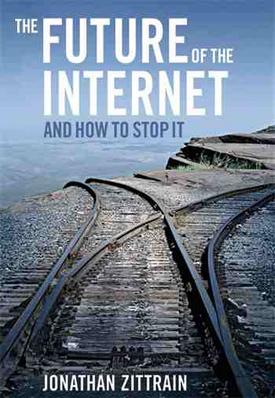 The iPhone is the opposite. It is sterile. Rather than a platform that invites innovation, the iPhone comes preprogrammed. You are not allowed to add programs to the all-in-one device that Steve Jobs sells you. Its functionality is locked in, though Apple can change it through remote updates. Indeed, to those who managed to tinker with the code to enable the iPhone to support more or different applications,4 Apple threatened (and then delivered on the threat) to transform the iPhone into an iBrick.5 The machine was not to be generative beyond the innovations that Apple (and its exclusive carrier, AT&T) wanted. Whereas the world would innovate for the Apple II, only Apple would innovate for the iPhone. (A promised software development kit may allow others to program the iPhone with Apple’s permission.) Jobs was not shy about these restrictions baked into the iPhone. As he said at its launch: We define everything that is on the phone. . . . You don’t want your phone to be like a PC. The last thing you want is to have loaded three apps on your phone and then you go to make a call and it doesn’t work anymore. These are more like iPods than they are like computers.6
The iPhone is the opposite. It is sterile. Rather than a platform that invites innovation, the iPhone comes preprogrammed. You are not allowed to add programs to the all-in-one device that Steve Jobs sells you. Its functionality is locked in, though Apple can change it through remote updates. Indeed, to those who managed to tinker with the code to enable the iPhone to support more or different applications,4 Apple threatened (and then delivered on the threat) to transform the iPhone into an iBrick.5 The machine was not to be generative beyond the innovations that Apple (and its exclusive carrier, AT&T) wanted. Whereas the world would innovate for the Apple II, only Apple would innovate for the iPhone. (A promised software development kit may allow others to program the iPhone with Apple’s permission.) Jobs was not shy about these restrictions baked into the iPhone. As he said at its launch: We define everything that is on the phone. . . . You don’t want your phone to be like a PC. The last thing you want is to have loaded three apps on your phone and then you go to make a call and it doesn’t work anymore. These are more like iPods than they are like computers.6Link:
http://futureoftheinternet.org/
No comments:
Post a Comment